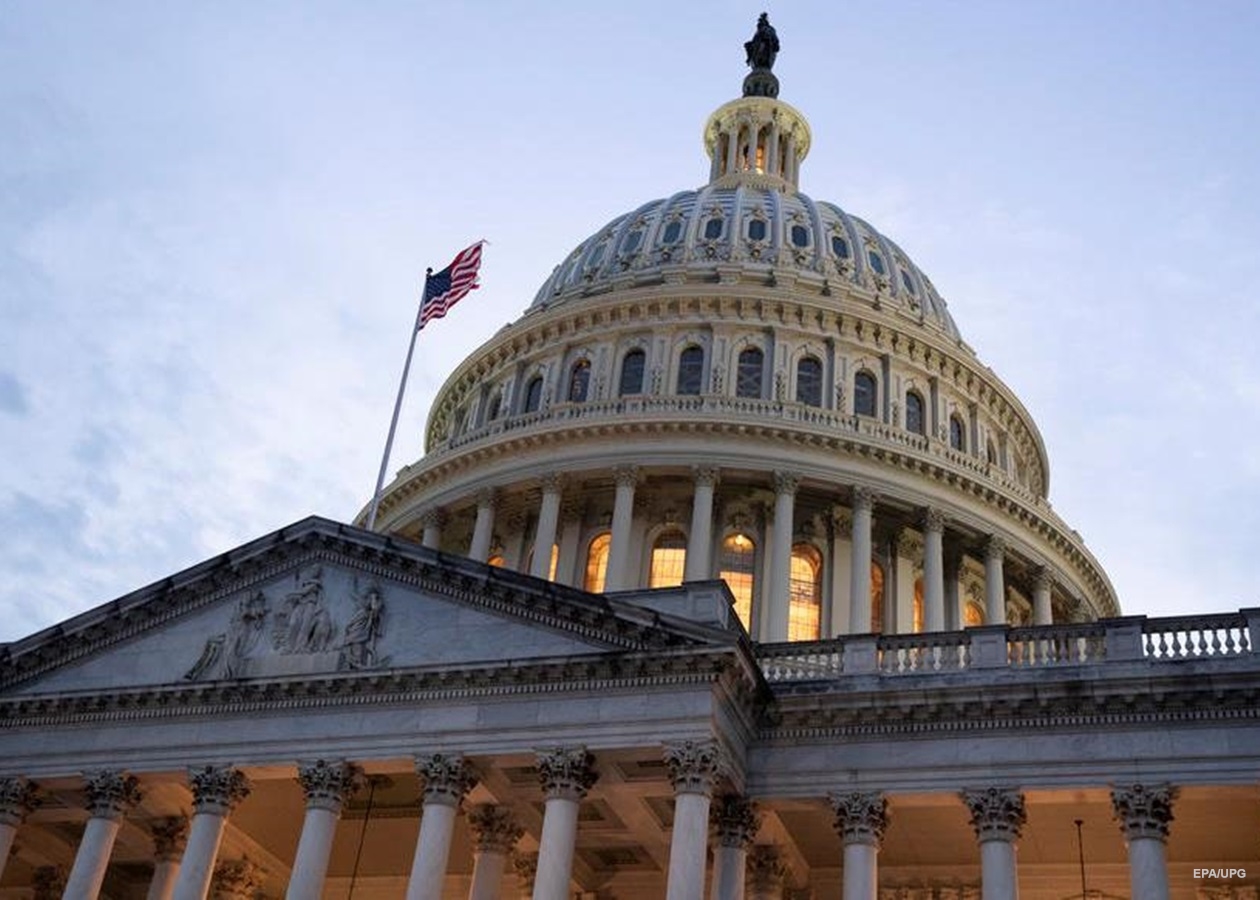Economy
U.S. public sees no clear winner in debt ceiling deal

Neither President Joe Biden’s Democrats or Republicans in Congress emerged as a clear winner in the battle to raise the $31.4 trillion debt ceiling, according to a new Reuters/Ipsos poll.
The survey, conducted after Congress passed a bipartisan deal to raise the borrowing limit, found that 50% of Americans thought neither party emerged as a winner, while another 20% said both sides won.
Another 20% said they thought Democrats emerged with the better side of the deal, while 11% said Republicans had done better, according to the four-day poll which concluded on Monday.
The poll found self-identified Democrats were more likely to be satisfied with the outcome. Some 80% of Democrats liked how President Joe Biden handled their side’s end of the talks, while just 13% took a dim view of Biden’s performance.
By contrast, only 44% of Republicans approved of how their party’s top congressional official, U.S. House Speaker Kevin McCarthy, drove the bargain for Republicans. Forty-two percent disapproved.
McCarthy’s poor marks reflect the deep divisions within his party. Hard-line Republicans who sought deeper government spending cuts in the talks have warned that McCarthy’s job could be in danger.
Biden and McCarthy reached a deal last week to suspend the debt ceiling weeks of negotiations between Biden’s White House and Republicans who control the House of Representatives.
Biden signed the deal into law on Saturday, averting the financial disaster that would have unfolded if Washington were forced to stop paying all its bills.
Politicians on both sides have presented the deal as a victory, with Republicans touting a reduction in non-military spending. Biden said the compromises in the deal were a sign the polarized nation could bridge its political divides.
Critics of the deal on the right said the cuts did not go far enough, while progressives criticized increased work requirements for struggling Americans receiving food or monetary assistance and provisions streamlining approvals for fossil fuel projects amid a climate change crisis.
The deal would cut spending by $1.3 trillion, less than the $4.8 trillion Republicans had sought. It does little to slow growth in federal debt that is on pace to exceed $50 trillion in a decade.
The Reuters/Ipsos poll surveyed 1,004 U.S. adults nationwide and had a credibility interval, a measure of precision, of about 4% in either direction.
Economy
Russian central bank says it needs months to make sure CPI falling before rate cuts -RBC


© Reuters. Russian Central Bank Governor Elvira Nabiullina attends a news conference in Moscow, Russia June 14, 2019. REUTERS/Shamil Zhumatov/File Photo
MOSCOW (Reuters) – Russia’s central bank will need two to three months to make sure that inflation is steadily declining before taking any decision on interest rate cuts, the bank’s governor Elvira Nabiullina told RBC media on Sunday.
The central bank raised its key interest rate by 100 basis points to 16% earlier in December, hiking for the fifth consecutive meeting in response to stubborn inflation, and suggested that its tightening cycle was nearly over.
Nabiullina said it was not yet clear when exactly the regulator would start cutting rates, however.
“We really need to make sure that inflation is steadily decreasing, that these are not one-off factors that can affect the rate of price growth in a particular month,” she said.
Nabiullina said the bank was taking into account a wide range of indicators but primarily those that “characterize the stability of inflation”.
“This will take two or three months or more – it depends on how much the wide range of indicators that characterize sustainable inflation declines,” she said.
The bank will next convene to set its benchmark rate on Feb. 16.
The governor also said the bank should have started monetary policy tightening earlier than in July, when it embarked on the rate-hiking cycle.
Economy
China identifies second set of projects in $140 billion spending plan


© Reuters. FILE PHOTO: Workers walk past an under-construction area with completed office towers in the background, in Shenzhen’s Qianhai new district, Guangdong province, China August 25, 2023. REUTERS/David Kirton/File Photo
SHANGHAI (Reuters) – China’s top planning body said on Saturday it had identified a second batch of public investment projects, including flood control and disaster relief programmes, under a bond issuance and investment plan announced in October to boost the economy.
With the latest tranche, China has now earmarked more than 800 billion yuan of its 1 trillion yuan ($140 billion) in additional government bond issuance in the fourth quarter, as it focuses on fiscal steps to shore up the flagging economy.
The National Development and Reform Commission (NDRC) said in a statement on Saturday it had identified 9,600 projects with planned investment of more than 560 billion yuan.
China’s economy, the world’s second largest, is struggling to regain its footing post-COVID-19 as policymakers grapple with tepid consumer demand, weak exports, falling foreign investment and a deepening real estate crisis.
The 1 trillion yuan in additional bond issuance will widen China’s 2023 budget deficit ratio to around 3.8 percent from 3 percent, the state-run Xinhua news agency has said.
“Construction of the projects will improve China’s flood control system, emergency response mechanism and disaster relief capabilities, and better protect people’s lives and property, so it is very significant,” the NDRC said.
The agency said it will coordinate with other government bodies to make sure that funds are allocated speedily for investment and that high standards of quality are maintained in project construction.
($1 = 7.1315 renminbi)
Economy
Russian central bank says it needs months to make sure CPI falling before rate cuts -RBC


© Reuters. Russian Central Bank Governor Elvira Nabiullina attends a news conference in Moscow, Russia June 14, 2019. REUTERS/Shamil Zhumatov/File Photo
MOSCOW (Reuters) – Russia’s central bank will need two to three months to make sure that inflation is steadily declining before taking any decision on interest rate cuts, the bank’s governor Elvira Nabiullina told RBC media on Sunday.
The central bank raised its key interest rate by 100 basis points to 16% earlier in December, hiking for the fifth consecutive meeting in response to stubborn inflation, and suggested that its tightening cycle was nearly over.
Nabiullina said it was not yet clear when exactly the regulator would start cutting rates, however.
“We really need to make sure that inflation is steadily decreasing, that these are not one-off factors that can affect the rate of price growth in a particular month,” she said.
Nabiullina said the bank was taking into account a wide range of indicators but primarily those that “characterize the stability of inflation”.
“This will take two or three months or more – it depends on how much the wide range of indicators that characterize sustainable inflation declines,” she said.
The bank will next convene to set its benchmark rate on Feb. 16.
The governor also said the bank should have started monetary policy tightening earlier than in July, when it embarked on the rate-hiking cycle.

 Forex2 years ago
Forex2 years agoForex Today: the dollar is gaining strength amid gloomy sentiment at the start of the Fed’s week

 Forex2 years ago
Forex2 years agoHow is the Australian dollar doing today?

 Forex1 year ago
Forex1 year agoUnbiased review of Pocket Option broker

 Forex2 years ago
Forex2 years agoDollar to pound sterling exchange rate today: Pound plummeted to its lowest since 1985

 Cryptocurrency2 years ago
Cryptocurrency2 years agoWhat happened in the crypto market – current events today

 World2 years ago
World2 years agoWhy are modern video games an art form?

 Stock Markets2 years ago
Stock Markets2 years agoMorgan Stanley: bear market rally to continue

 Economy2 years ago
Economy2 years agoCrude oil tankers double in price due to EU anti-Russian sanctions





























